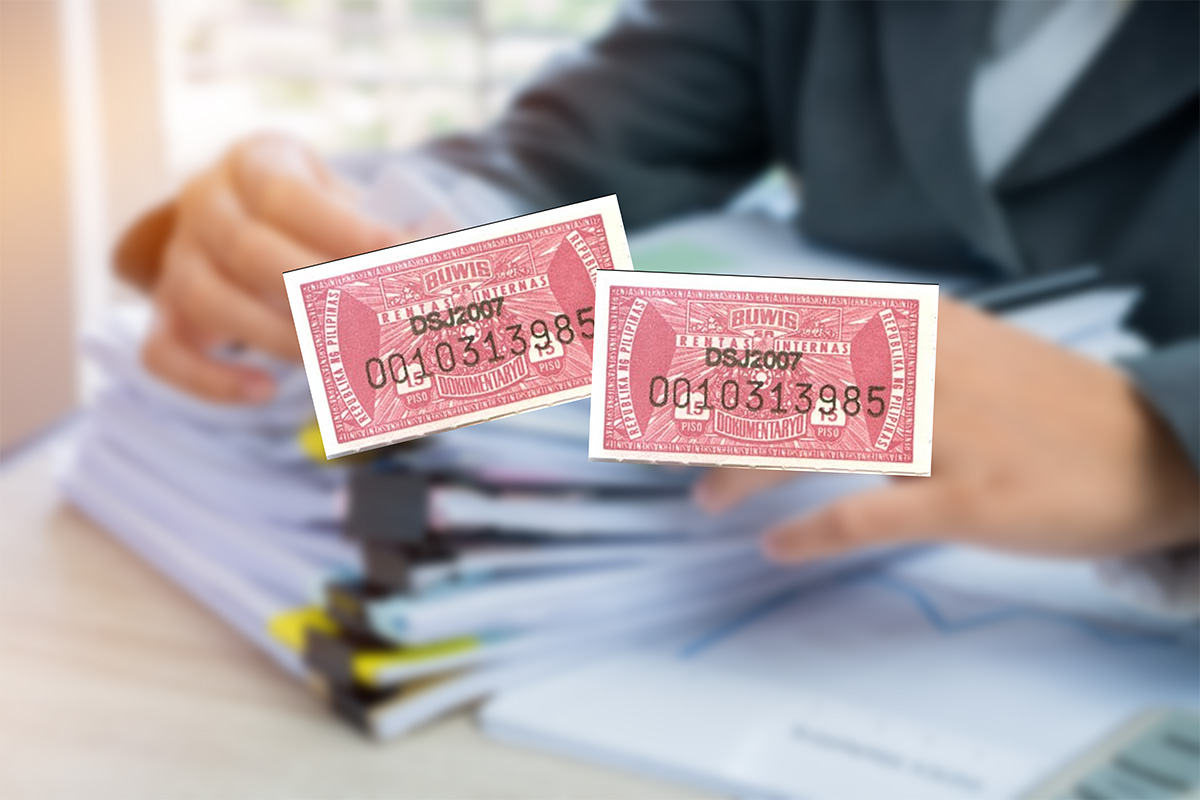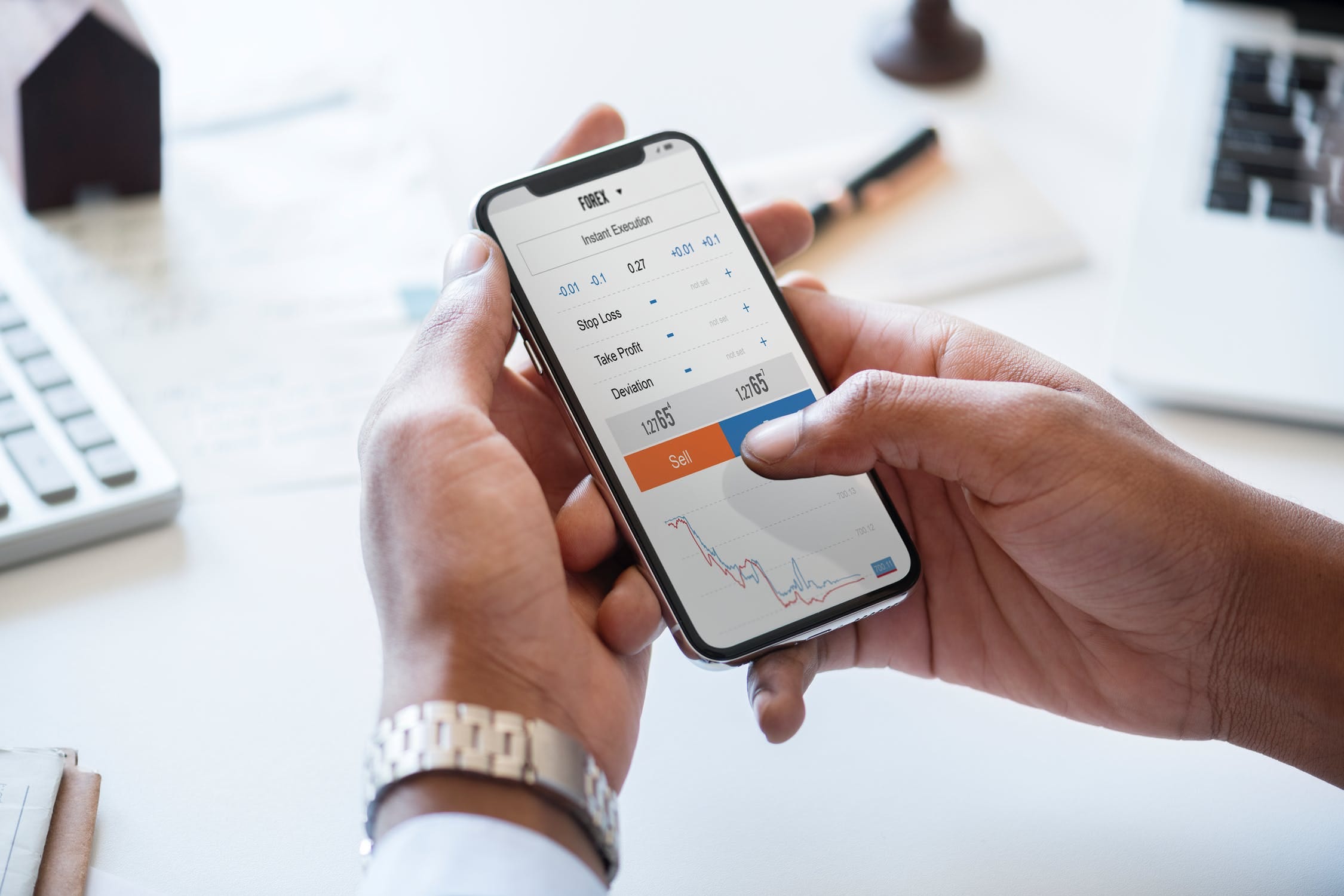

Finance
How To Apply For An ITIN Without A Tax Return
Published: October 28, 2023
Apply for an ITIN without a tax return with this comprehensive finance guide. Learn how to obtain an Individual Taxpayer Identification Number hassle-free.
(Many of the links in this article redirect to a specific reviewed product. Your purchase of these products through affiliate links helps to generate commission for LiveWell, at no extra cost. Learn more)
Table of Contents
- Introduction
- What is an ITIN?
- Why would you want to apply for an ITIN without a tax return?
- Eligibility requirements for applying for an ITIN without a tax return
- Documents needed for applying for an ITIN without a tax return
- Steps to apply for an ITIN without a tax return
- Important tips to consider when applying for an ITIN without a tax return
- Frequently Asked Questions (FAQs)
- Conclusion
Introduction
Obtaining an Individual Taxpayer Identification Number (ITIN) is an important step for many individuals who are not eligible for a Social Security number but need to pay taxes or engage in financial activities in the United States. While traditionally, applicants were required to submit a tax return along with their ITIN application, there are circumstances where individuals may need to apply for an ITIN without a tax return.
Applying for an ITIN without a tax return can be beneficial for several reasons. It allows individuals who do not have a U.S. tax filing requirement, such as non-resident alien spouses or dependents, to still obtain an ITIN for various purposes like opening a bank account, obtaining a driver’s license, or securing a mortgage. Additionally, individuals who need an ITIN for business purposes, such as a foreign investor or a self-employed individual, may also need to apply without a tax return. Understanding the eligibility requirements and steps involved in the process can help streamline the application process and ensure a successful outcome.
In this article, we will delve into the specifics of applying for an ITIN without a tax return. We will explore the eligibility requirements, the necessary documents, and the steps involved in the application process. Additionally, we will provide important tips and address commonly asked questions to help you navigate through the intricacies of obtaining an ITIN without a tax return. By the end of this article, you will have a clear understanding of the process and be ready to take the necessary steps to apply for an ITIN.
What is an ITIN?
An Individual Taxpayer Identification Number (ITIN) is a nine-digit tax processing number issued by the Internal Revenue Service (IRS) to individuals who are required to file a U.S. tax return but are not eligible for a Social Security number (SSN). The purpose of an ITIN is to ensure that individuals who have tax obligations in the United States can fulfill their tax responsibilities.
ITINs are primarily used by non-resident aliens, individuals who are not eligible for an SSN but have income or financial activities in the U.S. This includes individuals such as non-resident alien spouses or dependents of U.S. citizens or resident aliens, foreign students, and foreign investors. The ITIN allows these individuals to comply with U.S. tax laws and report income, claim certain tax credits, and be subject to tax withholdings.
It is important to note that an ITIN is not a form of identification for employment or eligibility for government benefits. Its sole purpose is for tax-related purposes. If an individual later becomes eligible for a Social Security number, they will no longer need to use their ITIN for tax purposes and will need to inform the IRS.
When applying for an ITIN, it is essential to provide accurate and complete information to the IRS. It is the responsibility of the applicant to ensure that all information provided is truthful and reflects their current circumstances. Failure to provide accurate information or misuse of an ITIN can result in penalties or legal repercussions.
Now that we have a clear understanding of what an ITIN is, let’s explore the reasons why someone may need to apply for an ITIN without a tax return.
Why would you want to apply for an ITIN without a tax return?
While the traditional process for obtaining an Individual Taxpayer Identification Number (ITIN) involves submitting a tax return, there are situations where individuals may need to apply for an ITIN without a tax return. Here are some common scenarios where this may be necessary:
- Non-resident alien spouses or dependents: If you are a non-resident alien and married to a U.S. citizen or resident alien, or if you have dependents who are non-resident aliens, you may need to apply for an ITIN without a tax return. This allows your spouse or dependents to comply with U.S. tax laws and potentially claim certain tax benefits, even if they do not have a U.S. tax filing requirement.
- Foreign investors or self-employed individuals: If you are a foreign investor or a self-employed individual conducting business activities in the U.S., you may need an ITIN for various purposes such as opening a business bank account or obtaining certain licenses or permits. In this case, you may not have a tax filing requirement but still require an ITIN to fulfill your business obligations.
- Banking and financial activities: Many financial institutions require individuals to have an ITIN in order to open a bank account or apply for a mortgage. Even if you do not have a U.S. tax filing requirement, having an ITIN can help facilitate these banking and financial transactions.
- Driver’s license and identification: Some states may require individuals to provide an ITIN to obtain a driver’s license or state identification card, even if they do not have a tax filing requirement. This is to ensure compliance with state regulations and identification purposes.
Applying for an ITIN without a tax return can provide important benefits and opportunities for individuals who do not have a U.S. tax filing requirement but still need to conduct financial activities or comply with certain regulations. It is important to note that the eligibility requirements and process for applying without a tax return may differ from the traditional application process, which we will explore in the next section.
Eligibility requirements for applying for an ITIN without a tax return
When applying for an ITIN without a tax return, there are specific eligibility requirements that must be met. The Internal Revenue Service (IRS) has outlined these requirements to ensure that individuals who apply for an ITIN without a tax return have a legitimate need for the number. Here are the key eligibility criteria:
- No U.S. tax filing requirement: You must not have a requirement to file a U.S. federal tax return. This means that your income must not be subject to U.S. tax laws, or you may be exempt from filing a tax return due to your immigration or residency status.
- Legitimate need for an ITIN: You must have a legitimate reason to apply for an ITIN without a tax return. This can include reasons such as opening a bank account, securing a mortgage, obtaining a driver’s license, or fulfilling business obligations in the U.S. It is important to provide supporting documentation or evidence to demonstrate your need for an ITIN.
- Individuals who cannot obtain an SSN: ITINs are specifically designed for individuals who are not eligible for a Social Security number (SSN). This includes non-resident aliens, foreign investors, non-resident alien spouses or dependents, and individuals who are not authorized to work in the U.S. It is important to verify that you are not eligible for an SSN before applying for an ITIN.
- Valid identification documents: You must provide valid and original identification documents to support your ITIN application. The IRS has specific guidelines on the types of documents that are acceptable, such as passports, birth certificates, or national identification cards. These documents must be current, contain a photograph, and show your name, date of birth, and foreign status.
It is crucial to carefully review the eligibility requirements before applying for an ITIN without a tax return. Providing accurate and truthful information, along with the required documentation, is essential to ensure a successful application process. Failure to meet the eligibility criteria may result in delays or the rejection of your ITIN application.
Documents needed for applying for an ITIN without a tax return
When applying for an Individual Taxpayer Identification Number (ITIN) without a tax return, you will need to provide specific identification documents to support your application. These documents are crucial in establishing your identity and eligibility for an ITIN. Here are the key documents needed:
- Original identification documents: You must provide original identification documents to verify your identity and foreign status. The Internal Revenue Service (IRS) accepts documents such as passports, national identification cards, birth certificates, or consular identification cards. The documents must be current (not expired), contain a photograph, and show your name, date of birth, and foreign status.
- Proof of foreign status: In addition to your identification documents, you may need to provide additional proof of your foreign status. This can include documents such as visas, U.S. Citizenship and Immigration Services (USCIS) approval notices, or Form I-94 Arrival/Departure Record.
- Supporting documentation for the reason to apply: Depending on your specific reason for applying for an ITIN without a tax return, you may need to provide supporting documentation. For example, if you are applying for an ITIN for banking purposes, you may be asked to provide a letter from a financial institution stating your need for an ITIN. If you are applying for a driver’s license, you may need to provide documentation from the Department of Motor Vehicles (DMV) confirming your need for an ITIN.
- IRS Form W-7: You will need to complete and submit IRS Form W-7, which is the Application for IRS Individual Taxpayer Identification Number. This form requires you to provide your personal information, the reason you are applying for an ITIN, and the required identification documents. The form can be downloaded from the IRS website.
It is crucial to ensure that all the documents you provide are valid, original, and accurate. The IRS may reject your application if the documents are not acceptable or if they suspect any fraudulent activity. Keep in mind that the specific documents required may vary based on your individual circumstances and the reason for applying for an ITIN without a tax return. It is recommended to review the IRS guidelines and consult with a tax professional or the IRS directly if you have any questions regarding the required documents.
Steps to apply for an ITIN without a tax return
If you need to apply for an Individual Taxpayer Identification Number (ITIN) without a tax return, you will need to follow a specific process outlined by the Internal Revenue Service (IRS). Here are the key steps to apply for an ITIN without a tax return:
- Gather the necessary documents: Collect all the required identification documents, proof of foreign status, and any supporting documentation for your reason to apply for an ITIN without a tax return. Ensure that all the documents are original, valid, and accurately reflect your current information.
- Complete the IRS Form W-7: Fill out the IRS Form W-7, which is the Application for IRS Individual Taxpayer Identification Number. Provide your personal information, including your full name, mailing address, date of birth, and foreign status. Indicate the reason for applying for an ITIN and provide the required identification document details in the appropriate sections of the form.
- Review the application: Double-check all the information provided on the IRS Form W-7 for accuracy and completeness. Any errors or omissions can result in delays or the rejection of your application. Make sure you have signed and dated the form before moving forward.
- Submit the application and supporting documents: Prepare your application package, which should include the completed IRS Form W-7 and all the necessary identification and supporting documents. Make sure to include copies of the original documents and not the originals themselves. Send the package to the IRS address specified in the instructions of the Form W-7.
- Wait for the ITIN assignment: The IRS will process your application and assign you an ITIN. This process can take several weeks, so it is important to be patient. You can check the status of your application online using the IRS ITIN Application Tracking Tool.
- Receive your ITIN: Once your application is processed and approved, the IRS will send you a letter with your assigned ITIN. Keep this letter in a safe place, as you may need it for future reference or when conducting financial transactions.
It is crucial to follow these steps carefully and provide all the required information and documents to ensure a smooth and successful ITIN application process. If you have any questions or need assistance, it is recommended to reach out to a tax professional or contact the IRS directly for guidance.
Important tips to consider when applying for an ITIN without a tax return
When applying for an Individual Taxpayer Identification Number (ITIN) without a tax return, it is essential to keep the following tips in mind to ensure a smooth application process:
- Review the eligibility requirements: Familiarize yourself with the eligibility criteria for applying for an ITIN without a tax return. Ensure that you meet the requirements and have a legitimate need for an ITIN based on your specific circumstances.
- Double-check your documents: Verify that you have gathered all the required identification documents, proof of foreign status, and any additional supporting documentation. Ensure that the documents are original, valid, and accurately reflect your personal information.
- Complete the IRS Form W-7 accurately: Take your time to fill out the IRS Form W-7 correctly. Make sure all the information provided is accurate, and review the form for any errors or omissions before submitting it. Sign and date the form as required.
- Keep copies of all documents: Make copies of all the documents included in your application package before submitting them to the IRS. This will serve as a backup in case any issues or delays arise during the processing of your application.
- Follow the instructions: Read and follow the instructions provided by the IRS carefully. Adhere to the specific guidelines regarding the submission of your application package, including the mailing address and any additional requirements.
- Track your application: Utilize the IRS ITIN Application Tracking Tool to monitor the status of your application. This will allow you to stay informed about the progress and expected timeline for the assignment of your ITIN.
- Keep your ITIN letter safe: Once you receive your ITIN from the IRS, keep the assigned number and the accompanying letter in a secure location. You may need to provide this information for future reference or when conducting financial transactions.
By following these important tips, you can enhance the efficiency and effectiveness of your ITIN application without a tax return. It is also recommended to seek guidance from a tax professional or contact the IRS directly if you have any specific questions or concerns regarding your application.
Frequently Asked Questions (FAQs)
Here are some frequently asked questions related to applying for an Individual Taxpayer Identification Number (ITIN) without a tax return:
-
Can I apply for an ITIN without a tax return?
Yes, you can apply for an ITIN without a tax return if you have a legitimate need for the number, such as for banking purposes, obtaining a driver’s license, or fulfilling business obligations in the U.S. -
What documents do I need to provide for an ITIN application without a tax return?
You will need to provide original identification documents, proof of foreign status, and any additional supporting documentation related to your reason for applying. Documents can include passports, birth certificates, consular identification cards, visas, or other relevant identification and immigration documents. -
Can I use a photocopy or a notarized copy of my identification documents?
No, you must provide original identification documents or copies certified by the issuing agency. Photocopies or notarized copies are generally not accepted by the Internal Revenue Service (IRS). -
How long does it take to receive an ITIN without a tax return?
The processing time for an ITIN application without a tax return can vary but typically takes several weeks. You can track the status of your application using the IRS ITIN Application Tracking Tool. -
Is an ITIN the same as a Social Security Number (SSN)?
No, an ITIN is not the same as a Social Security Number (SSN). An ITIN is issued to individuals who have a U.S. tax filing requirement but are not eligible for an SSN. It is primarily used for tax purposes and is not a form of work authorization or eligibility for government benefits.
These FAQs provide answers to some of the common questions regarding applying for an ITIN without a tax return. It is important to note that individual circumstances may vary, and it is always recommended to consult with a tax professional or the IRS for personalized guidance and assistance.
Conclusion
Obtaining an Individual Taxpayer Identification Number (ITIN) without a tax return can open up important opportunities for individuals who are not eligible for a Social Security number but have financial obligations or activities in the United States. Whether you are a non-resident alien spouse, a foreign investor, or an individual needing an ITIN for banking or identification purposes, understanding the application process is crucial.
In this article, we explored what an ITIN is and why someone might want to apply for one without a tax return. We discussed the eligibility requirements, the necessary documents, and the steps involved in the application process. It is crucial to gather all the required identification and supporting documents, complete the IRS Form W-7 accurately, and submit the application to the IRS. Tracking the progress of your application is recommended, and once your ITIN is assigned, keeping the letter safe for future reference is essential.
Applying for an ITIN without a tax return can be a complex process, and it is recommended to seek guidance from a tax professional or contact the IRS directly for personalized assistance. By following the outlined steps, providing accurate information and documentation, and staying informed about the progress of your application, you can navigate the process smoothly and obtain your ITIN successfully.
Remember, an ITIN is a valuable tool that allows individuals to comply with U.S. tax laws and engage in financial activities. It is important to use your ITIN responsibly and ensure that you keep it up to date if your circumstances change. By understanding the requirements and taking the necessary steps, you can confidently apply for an ITIN without a tax return and fulfill your financial obligations in the United States.














